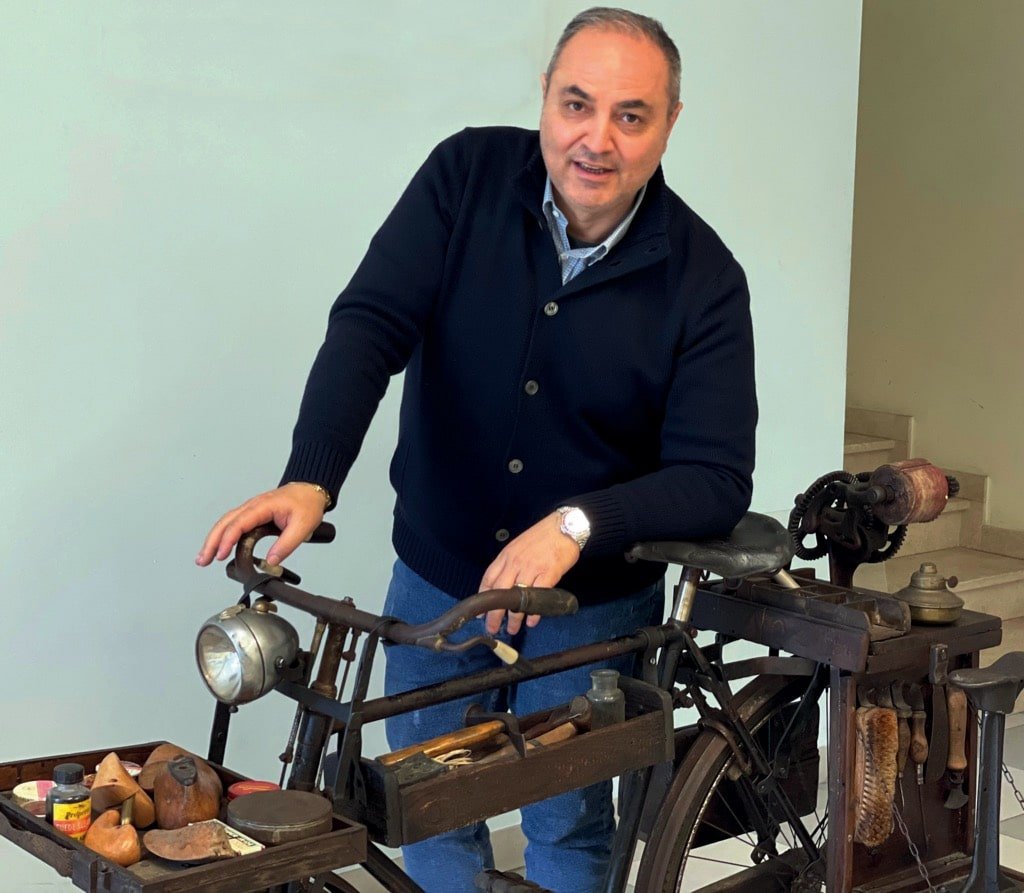Sollini, headquartered in Montegranaro, focuses on green and GRS product certification: a certainty for customers and a service for suppliers
Boasting fifty-four years of experience, Sollini, based in the Marche region, is a point of reference for the footwear and leather goods industry as regards the supply of accessories, fashion items and various components. Seven offices in Europe, sixty employees and almost two hundred thousand orders: these are the figures of this well-established company, founded by Gino Sollini in 1969 and passed down to his sons, who already worked in the company since the eighties, in the late nineties. Now they are supported by the two grandchildren, sons of Icli; one is a graduate in Management and the other is at the end of the operations management degree course. We met Icli Sollini at the headquarters in Monte Urano, in the core of the Marche footwear district, and we discussed the issues of sustainability and social responsibility: “Of course we need to look to the future paying attention to sustainability in the broadest sense, to the environment, and to the need to provide authoritative product certifications recognized on international markets. This is essential not only to guarantee corporate social responsibility but also to keep competitiveness among customers, who increasingly want to work with companies able to certify specific standards and requirements.”
From this point of view, Sollini is GRS certified; the Global Recycled Standard is an international, voluntary and complete product standard, which establishes the requirements for third-party certification of recycled content, the chain of custody, social and environmental practices and chemical restrictions. With regards to the supply of energy, a photovoltaic system capable of fully satisfying the company’s electricity consumption is about to be installed on land near the production buildings. “Furthermore – underlines Icli Sollini – we increasingly relying on electric cars for our vehicle fleet. I think this too will become unavoidable as long as we do it calmly and prudently.” There is one point that Icli Sollini particularly cares about relating to the ability to produce and supply numerous items for the construction of the shoe and to manage the difficulties related to certifications while keeping customers satisfied. “Many retailers supply customers with recycled products, certified or not, leaving them with the task of taking care of the various certification issues. It must be said that the GRS is a certification on a final product made up of various processes and steps which in turn must all be certified in compliance with rather restrictive dictates and rules. It is a supply chain, a chain that no longer works if broken.
With us, on the other hand, you can find and buy a multitude of various items, which the customer assembles with different raw materials that can be supplied by equipping each code with the appropriate certificate of recyclability (Transition certificate). We have no problems in this sense: whether it’s glue, insole or a technical product, we are able to certify and even act as a collector for other companies, making the cost of certification less heavy. We can group the documents of several materials and components because the transition certificate is issued on a single sale. A set of certified products that I can put together in a single invoice. The result is a considerable simplification and an important saving for our customers considering that one of the costs that is always highlighted is that the certificate has a binding cost for each single emission unit.”
The last few years have been positive for Sollini, which is optimistic about the future despite the war scenarios that are appearing in the world and the economic crisis, due in particular to the inflationary push, that are partially distorting the markets. “From the increase in raw material prices to the ongoing speculation, I believe there will be a strong process of repositioning products on the markets and also of company closures and mergers. As far as we are concerned, we have been working for some time to have a lean and flexible configuration on the markets and this means creating new and different structures and production lines and implementing assistance and distribution.”

Icli Sollini

